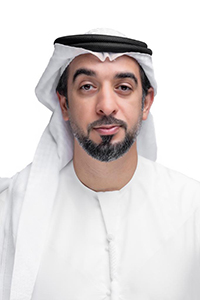
We believe in adhering to a sacred code of exemplary work ethic, integrity and dedication. Our priorities are the wellbeing and prosperity of the people living in this great nation, the region and abroad, and we are committed to using our expertise to contribute to the regional efforts in reshaping the electricity market and the energy sector, for their sake and for the sake of future generations.
The challenges are great but we are determined to overcome them through our expertise and relentless perseverance.

Demand-side based energy solutions integrated with deployment of renewable power are some of the main drivers of global sustainable development and might be the solution to many of the world’s throbbing economic problems. SmartWatt is not just a company; it is a foresight to bring innovation and rigor into a complex sector, the electricity sector, whose complexity is intertwined with national economic and geopolitical intricacies. Our mandate is to translate this innovation and rigor into smart systems that would be the solution to the efficient operation of this sector.
At SmartWatt, we believe it is our obligation to utilize our expertise in power systems operation and economics to aid national efforts in driving the efficiency of the energy sector regionally and in promoting the use of renewables in areas where they are most needed.
Dr. Sameh El Khatib received his PhD in Electrical Engineering, as well as his Bachelor’s and Master’s degrees from McGill University, where he pursued his research in power system analysis and economics, electricity market restructuring and planning, as well as decision-making in the energy sector. He worked under the supervision of one of the most renowned scholars of power systems operation & planning, an IEEE Fellow, Professor Francisco D. Galiana.
During his time as Faculty in the Engineering Systems & Management department at Masdar Institute in Abu Dhabi, his research group focused on the development and analysis of integrated engineering systems as well as demand side management and demand response programs to meet national energy sustainability targets.
As a visiting professor at MIT in Cambridge, he collaborated with Professor Nazli Choucri, the Director of the multi-disciplinary MIT-Harvard research project on Explorations in Cyber International Relations (ECIR). Their joint research was to investigate systematically the security challenges, both cyber and physical, in interfacing the grid’s physical structure with the new smart system layers of the emerging cyber physical smart power grids. The academic community in Cambridge recognized Dr. El Khatib and Professor Choucri’s work on cyber physical sustainability of smart grids and requested that they take part of MIT’s Interdisciplinary Consortium for Improving Critical Infrastructure Cybersecurity (IC)3.
Aside from his role as a Strategy Consultant at Booz & Company, Dr. El Khatib has also collaborated with various organizations such as GE, Etihad Airlines, ICAD and the University of Tokyo. Before being appointed as CEO of SmartWatt, Dr. El Khatib was a director of energy & power division, as well as senior advisor on strategic engagements for the CEO of ICAD, one of the largest KSA based system technology & integration companies in the region. Dr. El Khatib has numerous publications in power systems and policy-making in top-tier academic journals.
Dr. El khatib principal focus has been utilizing principles of power system economics to develop smart cities that can sustain new electricity markets where the end-user engagement is more pronounced to alleviate the stress on the thermal plants thus relieving the dispatch problem to meet power reliably at a cheaper marginal cost. The essence of such engagement is through manufacturing energy intelligence and power flexibility from end-users and utilizing it to address power grid requirements at a cheaper overall system cost.
Dr. El Khatib Selected Credentials
